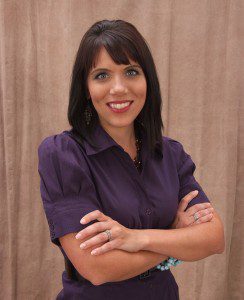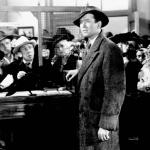 Melissa Ohden answers questions about her new book, You Carried Me: A Daughter’s Memoir.
Melissa Ohden answers questions about her new book, You Carried Me: A Daughter’s Memoir.
What were your feelings when, as an adolescent, you learned the circumstances of your birth and that you survived an abortion?
As you can probably imagine, the truth about my life was devastating and unexpected. When I found out, at the age of fourteen, I didn’t know much about abortion. I didn’t know that abortions could fail or that children could survive. And so I never expected to learn that I, myself, was one of those children.
I was angry, initially, at my biological parents, because I couldn’t understand how they could make that kind of decision about my life. Back then, I didn’t know what I know now about the circumstances surrounding my accidental birth, nor did I realize how little say a woman sometimes has. All I knew was that my own parents intended to end my life, and yes, that’s upsetting.
I didn’t stay angry for long, but it took me years to accept myself for who I am and not try to escape my own hurt and suffering. I’ve tackled guilt over surviving, guilt over being healthy, shame and embarrassment for being who I am in a world that doesn’t often show acceptance and respect for that. I’ve found out over time that these feelings are pretty common among abortion survivors.
How did you blend your stance on women’s rights with your objections to abortion? What did that dichotomy mean for you in your first year of college?
Here’s a question I pondered for years: Can I be a feminist and be pro-life? Already as a teen, I identified as a feminist and had a lot of interest in women’s issues. I spent years wrestling with how my feminist beliefs and my views on abortion might fit together, because I wasn’t well versed in the first wave of feminism, but only the second wave (thanks to my school and the media), the one that most people understand to be feminism but which is in stark contrast to the first wave and its support for life.
My first semester of college was pretty tough. There were other factors at play, which I discuss in my book, but being on a liberal campus I quickly learned that sharing my story meant that I would hear things like, “I’m sorry that that happened to you, but it doesn’t mean you have to be pro-life.” I had to come to terms with this on my own, recognizing that I didn’t have to choose between women and children, that I can support both, that being pro-life does support both. Finding Feminists for Life was a huge turning point for me. I read up on our feminist foremothers and told their stories when I first started speaking. I found women who were like-minded and discovered that there are more feminist pro-lifers than I ever imagined. I’m proud to be part of a movement that is getting back to the roots of feminism.
What are some of the ways women are silenced regarding their stories by families, those in leadership, and by the culture at large?
This is an important dynamic when we consider the impact of abortion. Although what happened in my biological family was dramatic, and the fact that I survived is quite unique, time and time again I’ve seen the dynamics of abortion and the silencing around it played out.
I applaud the women and men of Silent No More for their courage and strength in sharing their abortion stories. In a culture that pushes the “abortion is a choice and right” narrative, these men and women refuse to be silenced and are doing something very countercultural—sharing their stories of how abortion impacted them negatively, which flies in the face of this narrative. I am strengthened by their boldness.
At a family level, I see this dynamic quite frequently. When I started speaking years ago, I was initially surprised by how many stories I heard from women that were very similar to my birth mother’s, in terms of their life circumstances at the time of the abortion, the influence of their family in the abortion, and the impact that abortion had on their relationships within their family. I now understand these dynamics to be more the norm than an anomaly. Abortion changes relationships, and in many cases it causes incredible stress on them and ends them, particularly when there is the pressure from family to keep the abortion a secret.
It’s such an unfortunate thing that we live in a culture that claims to celebrate women’s rights yet ignores research about the negative impact of abortion on women, attempts to silence those who have had an experience that reflects this, and denies the rights of preborn women and abortion survivors like me. This flies in the face of empowerment of women.
Some say the topic of abortion played a large role in the outcome of the latest election. Is there any way to bridge the gap between both sides of the debate?
I’m sure I’m not the only one who feels like the world, and our country in particular, is a very divided place right now, especially on the issue of life, and there is an awful lot of anger.
I think there is a way to bridge the gap, in terms of both sides recognizing that there is common ground between us, when it comes to wanting women to be protected and respected in our society.
The issue is, however, that we clearly disagree about how women should be protected. The pro-life side sees abortion as an offense to women, born and preborn, while the pro-abortion side sees abortion as the ultimate right and therefore protection to women. I have found that many individuals who support abortion agree with me on many other issues, like making sure women don’t have to choose between motherhood and their education or career, or making sure women are aware of the social programs that exist to support them during pregnancy and once their children are born. That gives me hope.
But I don’t believe finding common ground means accepting the other position or weakening my own stance. I am unapologetically pro-life, and although I will always work to find common ground with someone to help women, children, and families, I believe it’s important to hold true to our beliefs and not compromise them.
What are your plans for the future regarding your speaking, this book, and your family?
This is always an interesting question for me, because, to be honest, I’ve learned to simply take it one day at a time and trust in God’s will and timing. I am incredibly blessed not only to be alive, but to be given a great calling as an advocate for life, in addition to my calling as a mother and wife. My goal is to always try to balance these.
That being said, I have a lot of hopes for You Carried Me. I hope it opens further public discourse about abortion and its effects on everyone. But perhaps more important are the thousands of private conversations this book will spark between mothers and daughters and between friends who don’t see eye to eye on this issue. I hope it opens the door to healing for many who have been impacted by it. I hope it provides strength and encouragement to other survivors. I pray that it allows the secrets of my biological family to finally be laid to rest and that it allows them to heal. Truly, I want that for every family impacted by abortion.
What does that mean for me? It means that I will keep speaking, blogging, and writing to advocate for protection and respect for all life, from womb to tomb.
What message do you have for young women considering abortion today?
First of all, there is always someone you can turn to. Too many women feel utterly alone and overwhelmed with what they are facing. So many women face great pressure and coercion to abort and feel like there is no one who they can turn to for support or for information about what other choices they have and what resources exist in combination with those choices. So, know that you are not alone: pregnancy resource centers, pro-life groups, and so many people in your own community want to be there for you.
Second, abortion is not the solution to whatever problem it is that you are facing in your life. Ending a life is never the answer. I understand that you may be facing difficult decisions, that maybe your child was conceived in difficult circumstances, but ending a life is never the solution. There are other options; there are people who will support you as you walk through whatever difficulty you are facing.
Lastly, abortion does have consequences. It ends a life (I am a very rare exception) and there are physical, emotional, mental, and spiritual effects that can last a lifetime.













